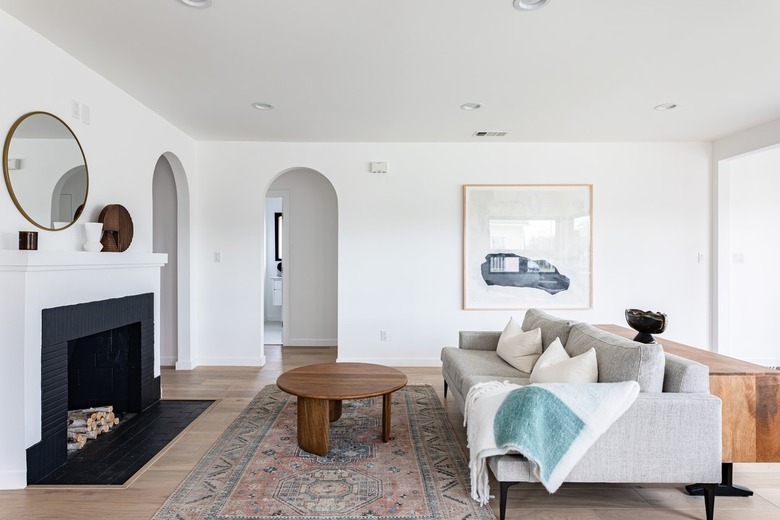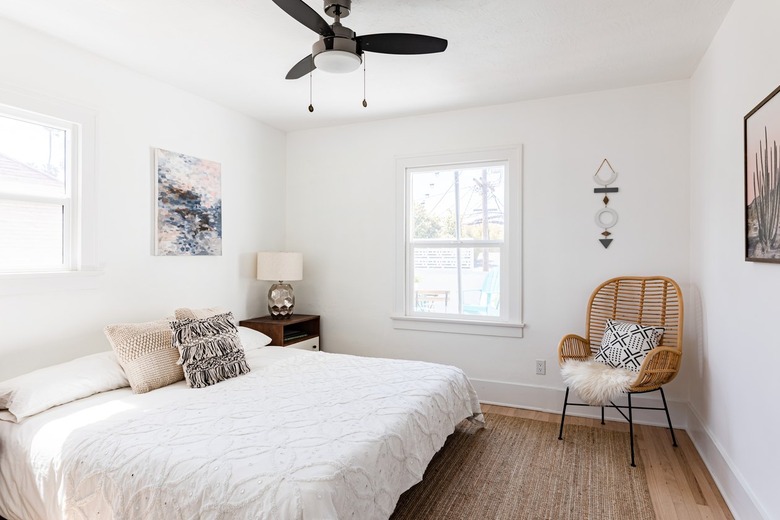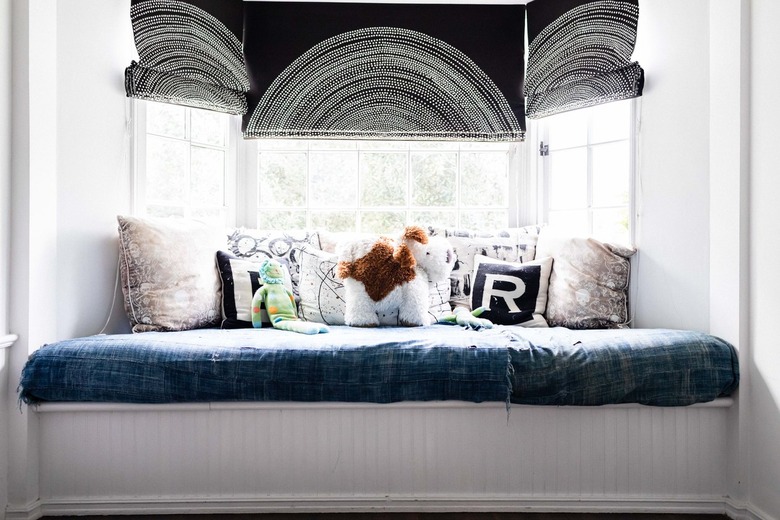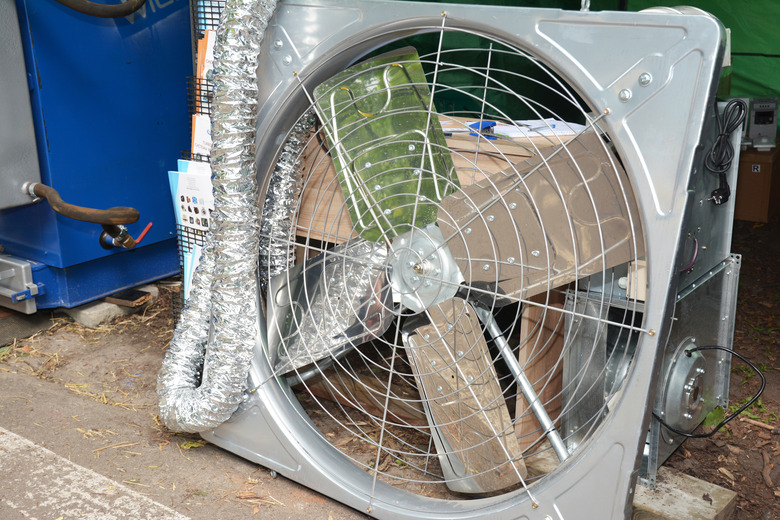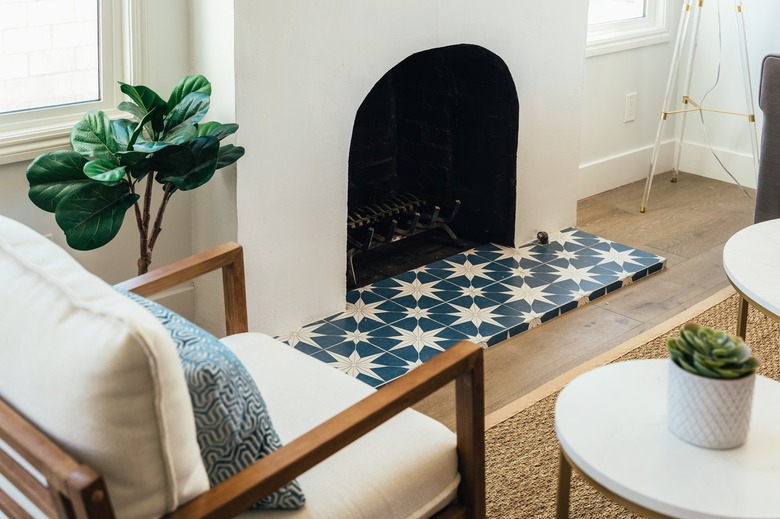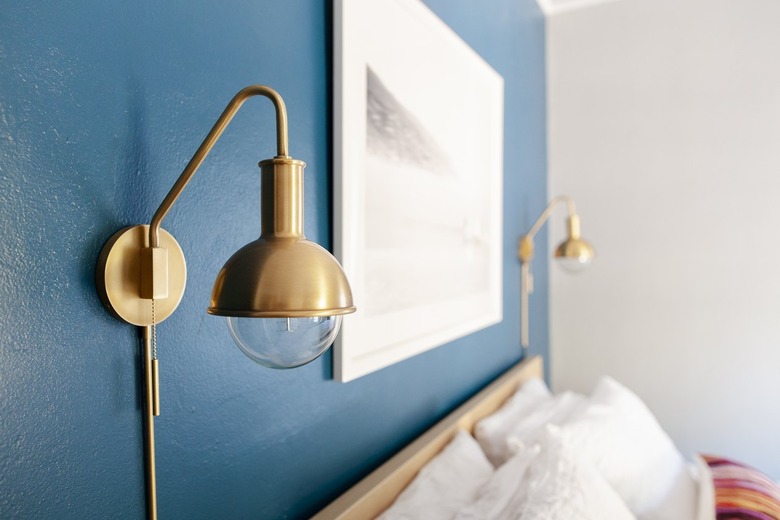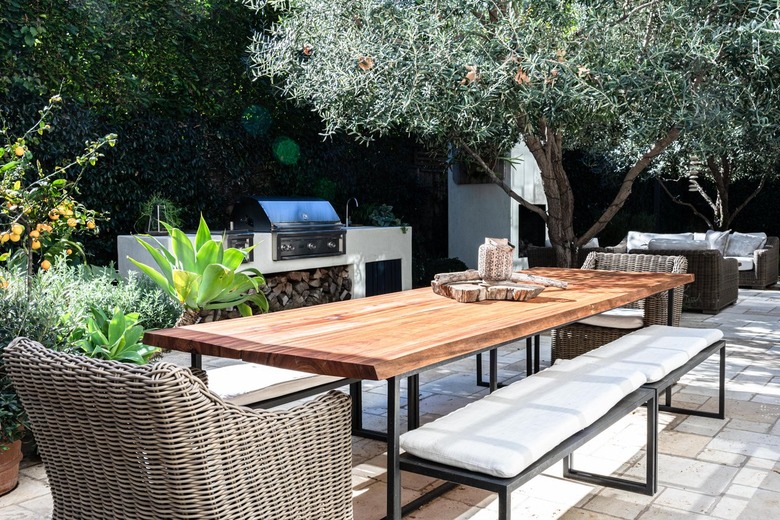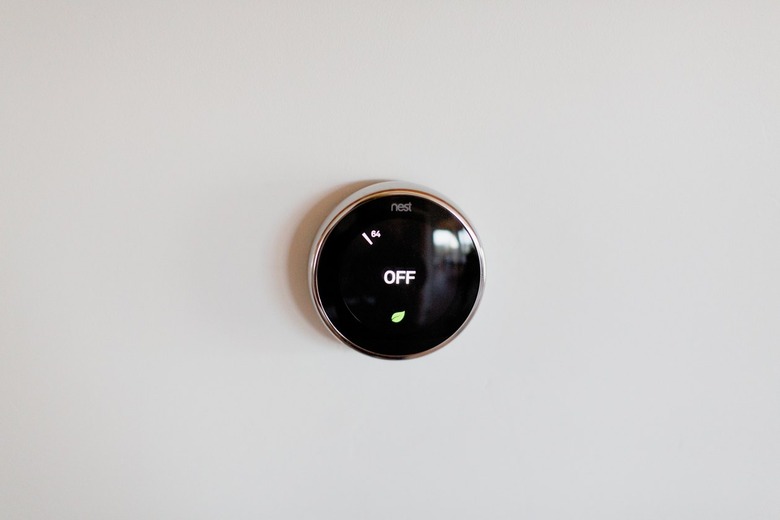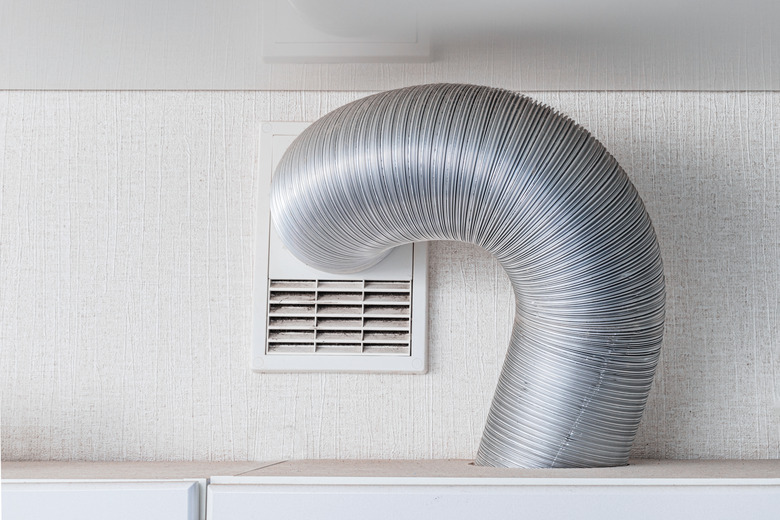Tips For Saving Energy In Your Home
We may receive a commission on purchases made from links.
Surely you've heard the standard advice for improving the energy efficiency of your home— adding insulation and sealing air leaks being the most common. Then there's always your parents' advice: Put on a sweater. And while these are certainly wise (really, insulating and air-sealing are the best ways to lower energy bills), there are plenty of other things you can do to save on heating and cooling costs, some of which you may have never thought of. They're all pretty easy and inexpensive, so why not try some and start saving money, regardless of the season?
Don’t Run Your Air Conditioner
Don't Run Your Air Conditioner
In other words, try to run your AC as little (and as warm) as possible. Why? Because conventional air conditioning runs exclusively on electricity. And electricity is expensive, especially in the summer, when everyone else is also running their air conditioning and the power grid is overtaxed. For this reason, most utilities charge a premium for electricity during peak hours in summer months. This can add up to a significant increase in your energy bills if you're not careful. At the same time, there are many cheaper ways to cool your house so you can use the AC less.
Turn Off Your Ceiling Fans
Turn Off Your Ceiling Fans
Don't read this the wrong way. ceiling fans are great and are among the cheapest ways to keep you cool. And therein lies the message: Ceiling fans keep you cool, but they don't keep a room cool. They work by blowing air over your skin, helping it release body heat. Keeping a ceiling fan running in an empty room actually raises the temperature slightly due to motor friction and electrical resistance in the wiring.
Open — or Close — the Window Shades
Open — or Close — the Window Shades
The heating power of windows is often underestimated. This is because most people think about losing and gaining heat through the glass, via heat conduction. But just as important is the solar heat that travels via radiation. It can be well below zero outside, but if sunlight is beaming through a window, its heat radiates to whatever the light lands on inside the house, and once in, that heat is more or less trapped inside. So, open your window shades to let in direct sunlight, even when it's really cold out. In summer, block direct sunlight as much as possible, starting early in the day. If a window is subject to intense, prolonged sun exposure in summer, consider installing a solar screen or shade to block that heat (an exterior shade is the most effective type).
Use a Whole-House Fan
Use a Whole-House Fan
A whole-house fan is a large, powerful fan that mounts into the ceiling of the top floor of a house. When you open the windows and turn on the fan, it sucks the hot indoor air out of the house and into the attic, replacing it with cooler outdoor air. This is best done at night or early in the morning, or whenever the temperature is cooler outside than inside. Whole-house fans may seem old-fashioned (and you typically do see them more often in older homes), but they work quickly and they only use a fraction of the electricity that air conditioners use. And unlike ceiling fans, whole-house fans actually cool the whole house, not just the people in it.
Tip
Seal up and insulate around a whole-house fan in winter so that hot air can't escape through the fan louvers.
Close Your Fireplace Damper
If you have a traditional wood-burning fireplace, make sure the damper is closed anytime you're not using the fireplace. Better yet, remove the old, iron damper and install a top-mount damper, which is much more effective at stopping airflow. Open or poorly sealed dampers let hot air escape through the chimney (what chimneys are designed to do). If you have an old fireplace that's been converted to gas, your damper probably has a safety device installed that prevents the damper from closing, as a precaution against carbon monoxide poisoning. In this case, the best way to stop the loss of interior heat is to install glass fireplace doors.
Switch to LEDs
Switch to LEDs
LED light bulbs use about 75 percent less electricity than comparable incandescent bulbs. From a heating and cooling standpoint, that energy savings translates to less heat added to your home. Incandescent bulbs use only about 10 percent of their energy to produce light; the rest is wasted as heat. Unless you're raising chickens, there's no reason not to switch to LEDs. They will save you money and help keep your home cooler — in a small way, for sure, but why pay for wasted heat in the first place and then pay more to remove that heat with air conditioning?
Cook Outside (or Not At All)
Cook Outside (or Not At All)
There's more than one reason why grilling is so popular in the summer. Cooking creates heat and moisture, both of which must be removed with air conditioning or other means to cool the house. Moving outside to cook your meals can make a noticeable difference in your indoor comfort on the hottest days.
Play With Your Thermostat
Play With Your Thermostat
Programmable thermostats can help you save energy by raising and lowering the temperature setting automatically, so that you don't have to remember to adjust the thermostat at night or when you leave the house for the day. Therefore, they save you energy and money only to the degree that you are forgetful. What might save you more money is taking a scientific approach to setting your thermostat. This requires some experimentation and paying close attention to your energy bill (see below).
For example, you might find that in the dead of winter, turning your heat down to 58 or 60 F each night then cranking it back up to 68 F in the morning uses the same or more energy than keeping the thermostat at 62 or 63 at night because your furnace has to work harder to go from 58 to 68 in the morning. Of course, you might find the opposite is true. It ultimately depends on your house construction, your heating equipment, the outdoor temperature, and other factors, such as the time between going to bed and getting up. The point is, it's best to decide for yourself what practices are most efficient — using your heating bill to gauge the total energy usage — rather than blindly following the standard recommendations. If you air-condition your house, use the same scientific method in the summer.
Don’t Cool While You’re Away
Don't Cool While You're Away
Extreme heat and cold have different effects on a house. When you go on a trip in winter, or even when you're gone all day, it makes sense to keep the heat at a reasonable temperature, such as 58 or 60 F. This is because the materials and objects in the home will cool to that temperature and must be heated back up when you get home and raise the thermostat setting. By contrast, if you have the heat turned off all day, the house materials may get very cold, and they will retain that cold for much longer after you turn up the heat. And ff the indoor temperature gets too cold, your pipes can freeze.
Cooling a house is different. There's no harm in leaving the air-conditioning off for any extended period, since it's there only for your comfort, and pipes don't burst from getting too hot. When the AC is off, the objects and materials in a house will heat up but not to the extent that they can cool down in the winter. This also means there won't be as much heat to retain. For these reasons, it is relatively efficient to leave the AC on if you're gone only for a few hours, but otherwise, it's more efficient to shut it off for the entire time you're away.
Button Up Your Ductwork
If you have forced-air heat as well as central air conditioning, you can save on heating and cooling costs by sealing your ductwork. Even if your ductwork is relatively new and in good condition, if it's not sealed it probably has lots of small leaks. Leaks in ducts, particularly at joints and other fittings, allow heated or cooled air to escape and go to waste in your basement, crawlspace, attic, or other unfinished area. The best sealant for ducts is water-based duct mastic, which is easy to apply and doesn't have to look pretty. You can also seal holes and large gaps with metal duct tape. Don't use standard duct tape on ducts because it's plastic and will eventually dry up and fall off.
Get an Energy Audit
Get an Energy Audit
An energy audit is a professional assessment of a home's energy performance, including everything from insulation levels and window and door seals to ductwork and heating and cooling equipment. Among other tests, energy auditors often use infrared cameras and blower-door equipment to assess a home's airtightness and insulation quality.
After your home's checkup, an auditor will sit down with you to discuss the findings and recommended remedies. They'll also help you prioritize which energy upgrades are most important and which will give you the most bang for your buck. Along the same lines, you shouldn't even think about expensive upgrades, like new windows, before getting an energy audit. You might learn about more effective and much less expensive ways to lower your energy bills.
Read Your Utility Bill
Read Your Utility Bill
One of the best ways to understand your energy usage is to actually follow how much energy you use. All the information you need is on your monthly utility bill. Electricity usage is calculated in kilowatt-hours, or kWh. If you run a 100-watt light bulb for 10 hours, you use up 1 kWh of energy. Natural gas usage is calculated in therms.
Studying your bill each month will help you keep track of the effects of your energy improvements and efficiency measures. Most bills provide comparisons to the previous year's bills, including the average temperature for the respective bill periods. This helps you account for unseasonable weather when comparing year over year. Some utility companies also compare your home's energy usage to your neighbors', which can be humbling, motivating or gratifying, depending on how you rank.
